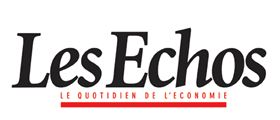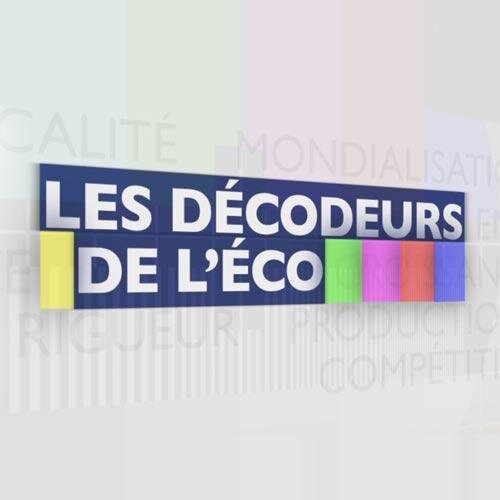
A facist America?
Are the United States at risk of giving into a totalitarian drift embodied by Donald Trump?

The United States: the decline of the right to vote
More and more states are requiring voters to present an approved form of identification, a formality that primarily affects ethnic minorities.
Washington and Beijing, between competition and interdependence
During his state visit in the United States, the Chinese President Xi Jinping called for a new model of relations between the two countries. In Alice Ekman’s opinion, the notion of a “new type of major power relations” invoked by China implies the establishment of a relationship that would put the country on an equal footing with the United States.

The American Campaign
Où en est la campagne américaine ? on France Culture, with Christine Okrent
Why is the United States so worried about Greece's exit from the eurozone?
- Le 8 juin, lors du G7 en Bavière, Barack Obama invitait ses partenaires européens à trouver un accord rapide pour résoudre la crise grecque.
- Mercredi, c'est le secrétaire d'État au Trésor, Jack Lew, qui s'est inquiété des « chocs extérieurs » qu'entraînerait un échec.
- Hier, les États-Unis ont dépêché un membre du département d'État à Athènes en pleine négociation avec ses créanciers.


Donald Trump, candidat à la présidentielle des Etats-Unis
Donald Trump, American presidential candidate: Where is the campaign? with Laurence Nardon, head of the United States program at the French Institute for Intenational Relations (IFRI).

NSA : can Americans talk privately?
Anne Giudicelli, founder of TERR(o)RISC, Laurence Nardon, researcher and head of the United States program at IFRI, Benaouda Abdeddaïm, columnist at BFM Business and Romain Zerbib, strategic management researcher with IGS, share their thoughts on privacy as the Patriot Act expires.
Les Décodeurs de l'éco, from June 1st, hosted by Fabrice Lundy, on BFM Business.


Foreign Policy : Obama's America without a Compass
How is the geopolitical transformation of asia most affecting the United States? Interview with Christopher Johnso
Christopher Johnson, Senior Advisor and Freeman Chair in China Studies, Center for Strategic and International Studies (CSIS), and Managing Director for China, Bower Group Asia, expressed his views on the following questions:


How to Misread Polls
Poll numbers are the life blood of politics these days. Anything expressed in digits has a claim to truth that assertions without digits cannot make. They inspire confidence - especially among those aspiring to public office - that they actually understand what public sentiment is.
Obama announces "Opportunity Ladder"
There are moments in life when you receive an unmistakable sign that the game is over. That it’s time to fold your tent, to pull up stakes, to pack it in, to furl the flag, to trim the sails, to let go of a lost cause. At best, to wait for next year. In the extreme, to write it off permanently. And if one chooses to breast the tide, to do so stoically.
The Return of Robert Gates
The memoirs of public men are exercises in self-promotion and self-justification. They are designed to etch a portrait of the (wo)man that will live across time. It's the legacy thing. These days, that legacy pertains also to the "here and now" since memoirs are not necessarily the conclusion of a career but rather the curtain-raising on its next act.
The Impact of the Development of Shale Gas in the United States on Europa's Petrochemical Industries
The shale gas revolution has led to strong falls in energy prices, reducing significantly the raw material costs of the US petrochemical industry. Between 2008 and 2012, US gas prices fell by two thirds.
Accountability: "Missing In Action"
Accountability is on the endangered species list. No - not the word. Indeed, “accountability” reverberates around the electronic ether almost as frequently as “thwarking.” It is the reality of persons, especially public persons, taking responsibility for acts of malfeasance in ways that entail exemplary punishment and personal costs.
Why Hillary?
Hillary Clinton has been enthroned as the presumptive next President of the United States - by the celebrity mongers, by the trendy Hollywood set, by the media, by the pundits, by the big donors, by Congressional Democratic leaders like Nancy Pelosi and Charles Schumer and by the Las Vegas odds-makers. The crystallization of a consensus three years before the event is as intriguing as the questions about what sort of president she would make.
The Washington Tea Party
The near meltdown of the United States government evoked worldwide dismay and confusion. Both reactions were especially acute among America’s well-wishers. For not only would they have suffered the consequences of a global economic crisis but they also feel dependent on the probity of American leadership. That dependence may stem in part from their own failures to assume their reasonable share of responsibility for sustaining an orderly international system - a state of affairs remarkably unaffected by the costly flaws in Washington’s custodianship over the past several years. It is nonetheless real.
NSA Does the Grand Tour
On Tuesday Barack Obama called President Francois Hollande of France to explain the National Security Agency’s massive surveillance of French government offices, businesses and private citizens. Obama stated that this was a well-meaning attempt to protect both countries from Islamic terrorism. He offered to “reexamine” the program so as to determine whether the right balance was struck between public safety and privacy rights.
Global Swing States and U.S. Strategy
Defending and renewing the global order is a priority for the United States and Europe. An important part of this effort will be accomplished if transatlantic partners can successfully engage four “global swing states” — Brazil, India, Indonesia and Turkey — in the management of global issues, because of their geopolitical and economic status, as well as their desire to have a stronger voice in the various international forums. Successful engagement of these nations will be key to preserving the international order and U.S. leadership.
Le Pentagone face à la séquestration et aux sorties de guerres : l'art du brouillard budgétaire ?
The U.S. defense budget has faced a sharp reduction since 2010, linked to the drawing down of two wars and the Great Recession.
Support independent French research
Ifri, a foundation recognized as being of public utility, relies largely on private donors – companies and individuals – to guarantee its sustainability and intellectual independence. Through their funding, donors help maintain the Institute's position among the world's leading think tanks. By benefiting from an internationally recognized network and expertise, donors refine their understanding of geopolitical risk and its consequences on global politics and the economy. In 2024, Ifri will support more than 70 French and foreign companies and organizations.















